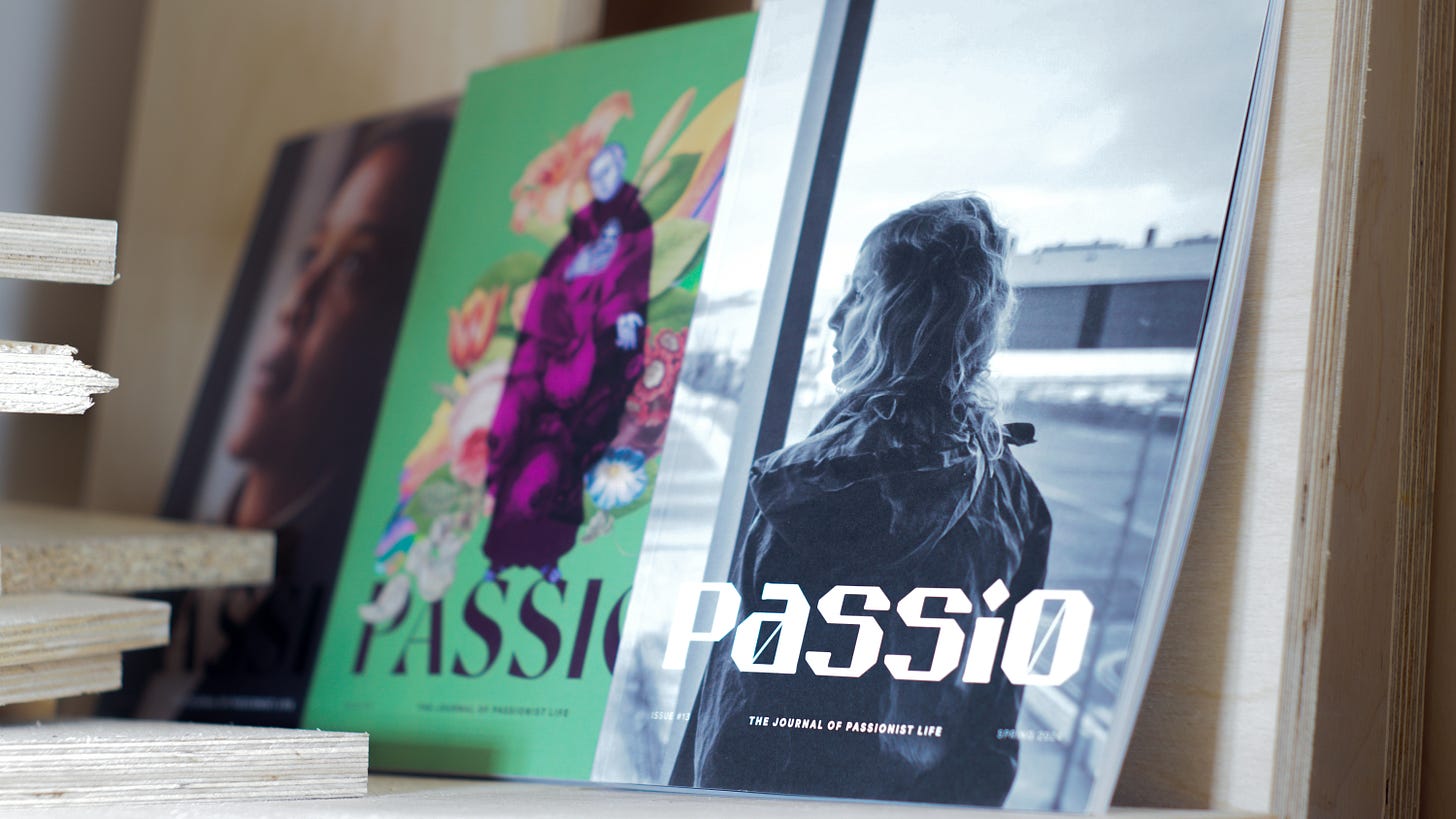First, be present with the other
Social and economic context matters. But there's something in being genuinely present first.
Part 3 of our series with David Benjamin Blower: Notes on Poverty, Death and Nothingness, exploring the writings of St Paul of the Cross
I once heard the activist Shane Claiborne say that our politics tends to be defined by what we see out of our window. In other words, the social and economic reality of our neighbourhoods shape how we see the world.
If we find ourselves in the places of wealth and comfortable independence, it's easy to believe that the world has been well arranged by the powers, and the only problems to be solved are the bad apples who occasionally upset the balance. On the other hand, if we live amid deprivation and struggle we might well see a world that has been fundamentally mismanaged, and that those who try to defend the world’s unbalanced power structures are, in fact, stood in the way of justice.
I confess to feeling a certain dissonance when I go looking for the politics of St Paul of the Cross. If the Passion is what we see out of the window, as it were, then the benchmark for our political imagination will be the experiences of the powerless and the oppressed and the brutalized. However, it must be said that the gaze of St Paul tends to be fixed on the wounds of the Messiah, but not so much on the spear, the nails and the beatings that caused them.
It isn’t quietism, I don't think.1 Quietism cries crocodile tears. I cannot care about a suffering person if I am indifferent to the cause of the suffering. St Paul’s contemplations of the Passion aren’t quietist. They are, however, totally fixed on the suffering person, in that sort of way that appears to be unaware of the surrounding chaos. He wants to be absolutely present to the person, first and foremost:
“When we meditate on the Passion of Christ, seeing him in such affliction, we ought to be compassionate, and to remain looking upon him in such great torments, and through compassionate love, to make his sufferings our own.”
“O good Jesus, how swollen, bruised and defiled with spit do I behold thy countenance! O my love, why do I see thee all covered with wounds? O infinite sweetness, why are thy bones laid bare? Ah what sufferings, what sorrows… O my God, for what art thou wounded?”
These questions hang, without any direct acknowledgment of the violence and force at work in the scene. And yet there’s something I've come to appreciate about this total and unwavering presence with the suffering person. It is an ugly truth that people's sufferings are often cheaply used to prove the righteousness of one political system or another. Or to put it another way, our politics can begin to define what we see out of the window. In a world where tribal belonging is arranged around having the right sort of political opinions, other people's sufferings become pawns in an intellectual game. It's easy to read the right newspaper, but to be really present to a person in their trouble is something else.
In the end, what Paul of the Cross fixed his gaze upon every day really did define his politics. “Wear, if you wish, a necklace of pearls when you go out; but when you put it on, remember that Jesus wore the rope.” And again, he says, “The name of Christ is written on the foreheads of the poor.” A deeply held compassion gradually becomes the measuring line for everything else, but this begins with being truthfully present to the suffering Other. Without this, nothing truthful begins at all.
David Benjamin Blower is a writer, poet, musician, theologian, and podcaster. David Benjamin Blower
Get back-issues of Passio Magazine for free with Issue #13!
This week you can also grab a copy of Passio Magazine Issue 11 or Issue 12 for free when you buy the new Issue 13. Just use the coupon code passionistlife in our Passio Shop.
Quietism, if you’re unfamiliar with the term, is a spiritual practice that emerged just before St Paul’s life, which broadly meant a sort of studied passivity or self-annihilation, a removing of oneself from the world.







